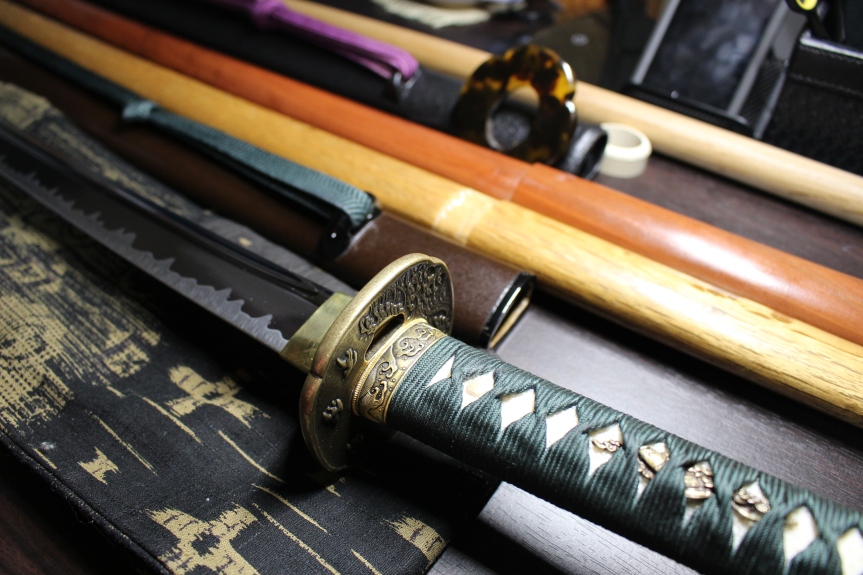A friend of mine recently asked “How can I become a better martial artist?” That’s a pretty general question, so I said I’d think about it and get back to them. Here were some of my thoughts (with more to come later).
Find people better than you
Often in larger schools it is difficult to see the head instructor perform techniques, ask them questions, or generally get much one on one time.You should have at least one person, if not a dojo (dojang, school, etc) full of more skilled and or knowledgeable martial artists that you can use to your advantage to propel yourself to a higher level each day. If everyone else there just started, or you’re the only student there for that matter look up to the sensei (certainly the sensei should be the best source). It’s difficult to increase your own level without seeing someone better than yourself. Obviously it can be done even if you are training alone in your house, but that is far from the most direct way.
Listen to and watch those around you
Now, I’m not saying listen to everyone about everything… If you do that, you could be running around in a circle of mismatched advice that will leave you exhausted and no better for your efforts. What I mean is to really pay attention during your lessons/ practice sessions. Watch the movement of your most skilled senpai. Sometimes you are likely to be frustrated, but that’s all part of learning something new. If it was easy, and everyone could do it on the first try without effort, where would the fun be in that?!
It is often best to pick a few trusted sources from the more skilled and higher ranks of your dojo. There are times to go directly to the sensei (when you have conflicting advice) and when you’re OK with the higher ranks’ knowledge.
Ask Questions
This is key at any level. I’m sure I’ve driven a few of my sensei insane by the number of questions I’ve asked, but it is a life saver. I learn by seeing and doing much faster than by just hearing and reading concepts. I like to know why a movement is done a certain way. I envision a situation that it could be used, and try to break down the move, find its weaknesses and see why it’s not done one way or another. Usually it can be done differently, but what we are taught is the basic building block of the advanced movements. After you learn something try it out, and write it down.
Write EVERYTHING down
I use to be against the idea of writing a notebook of techniques, form movements, names, styles, and such. But then I started learning more and more. I started practicing multiple styles, and am more and more fascinated by the plethora of ways to come to the same end.
I was also annoyed by lack of space in my notebooks and the constant need to replace pages, hunt for what I was looking for, and such. But now, with resources like OneNote, Evernote, and more, it’s incredibly simple to edit entries, add notes, and organize your thoughts in a way that works for you. I like the idea of having a small physical copy of some form with me, editing and adding notes by hand as it’s faster and then editing the digital copy later.
Notes:
This is by no means an all-inclusive list, but if you can do this, you’ll be well on your way to improving. More thoughts to come.
Kouhai ( 後輩 こうはい ) refers to a junior in comparison to someone else. Whether it be from age, rank, or skill.
Senpai (先輩 せんぱい ) refers to a senior in comparison to someone else. Whether it be from age, rank, or skill.
Sensei (先生 せんせい) refers to a teacher; master; doctor. Literally translated as “person born before another”
If you liked this post and would like to see more, feel free to follow.
If you would like to help support Aizu Arts and see even more exclusive content, check out my Patreon page.


Reblogged this on mindofryan and commented:
This is my new page called Aizu Arts, I will be focusing on Japan, Martial arts, and more. Check out my first post in the new series!
LikeLike